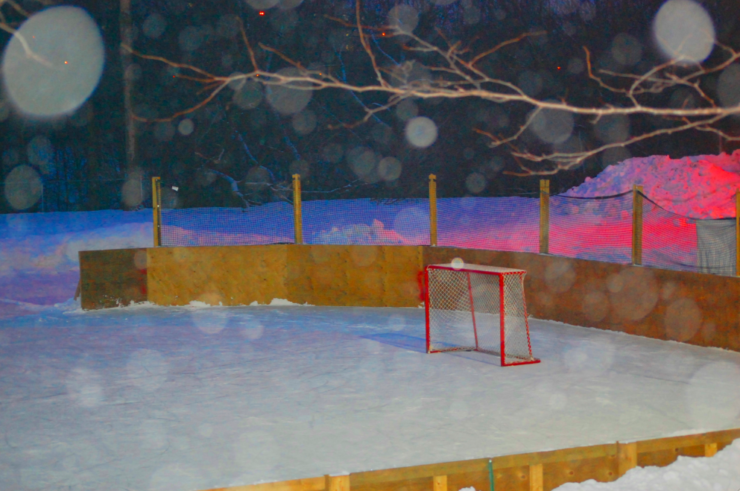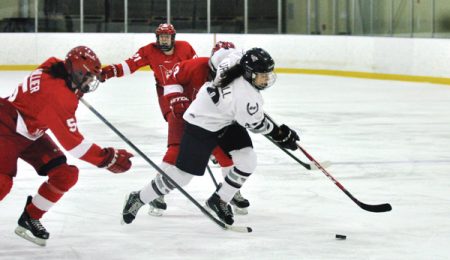Climate change will gravely affect Canadian pastime
Maclaine Chadwick | Fulcrum Staff
Photo by Brennan Bova
OTTAWA’S WINTER MONTHS can usually provide a decent spread of activities—snowshoeing in Gatineau Park and skiing or snowboarding at nearby Eidelweiss to name a few. Until recent weeks, though, one of Canada’s cultural staples was absent from many of Ottawa’s communities—outdoor skating.
Global climate change is threatening this activity, and to play hockey or go for a skate on a frozen lake or pond may soon be a thing of the past.
Robert McLeman is the founder of RinkWatch, a website that tracks climate conditions based on outdoor community rinks. The website runs on reports submitted by rink patrons and operators and collects data on rink conditions.
“We just launched it on Jan. 8, but we have 750 rinks registered across North America—from the Yukon, to Newfoundland, even Minnesota and Massachusetts,” he said, in an interview with the Fulcrum. “They are providing a lot of data about what is going on this winter.
“We didn’t know what to expect [after launching], but within a couple of days our server was crashing from people trying to access the website,” McLeman continued.
While it is still too soon to make any major conclusions on the data collected, one finding has really stood out to McLeman and his team of student researchers.
“One of the things we are seeing is that -5 degrees Celsius seems to be the magic number in terms of temperature. As long as the average temperature stays below -5, you get good skating,” he said.
A 2009 study by David Suzuki states that Canadian winters have had the greatest shift in temperature over the past 50 years as a result of climate change, and that ice-cover duration for rivers and lakes has been getting shorter as overall air temperature increases.
“Rideau Canal’s winter skating season, historically about 61 days long (nearly nine weeks), would shrink by 29 per cent (2.5 weeks) by 2020, and lose 67 per cent of its skating days (41 days) by 2050,” stated the study.
Communications major Alex Murata plays hockey on the outdoor rinks in Sandy Hill and Jules Morin parks up to three times a week, and was devastated by scientists’ predictions.
“For me, personally, and I know for the majority of my friends as well, it would be a big loss if we could no longer skate outside,” said Murata. “So many people have grown up playing hockey outside in Canada. It would be a huge loss because it’s a great tradition and a great way to make friends and socialize during the cold winter months.”
For now, shinny lovers can contribute to the research by reporting conditions of their favourite outdoor skating rink at RinkWatch.org.





